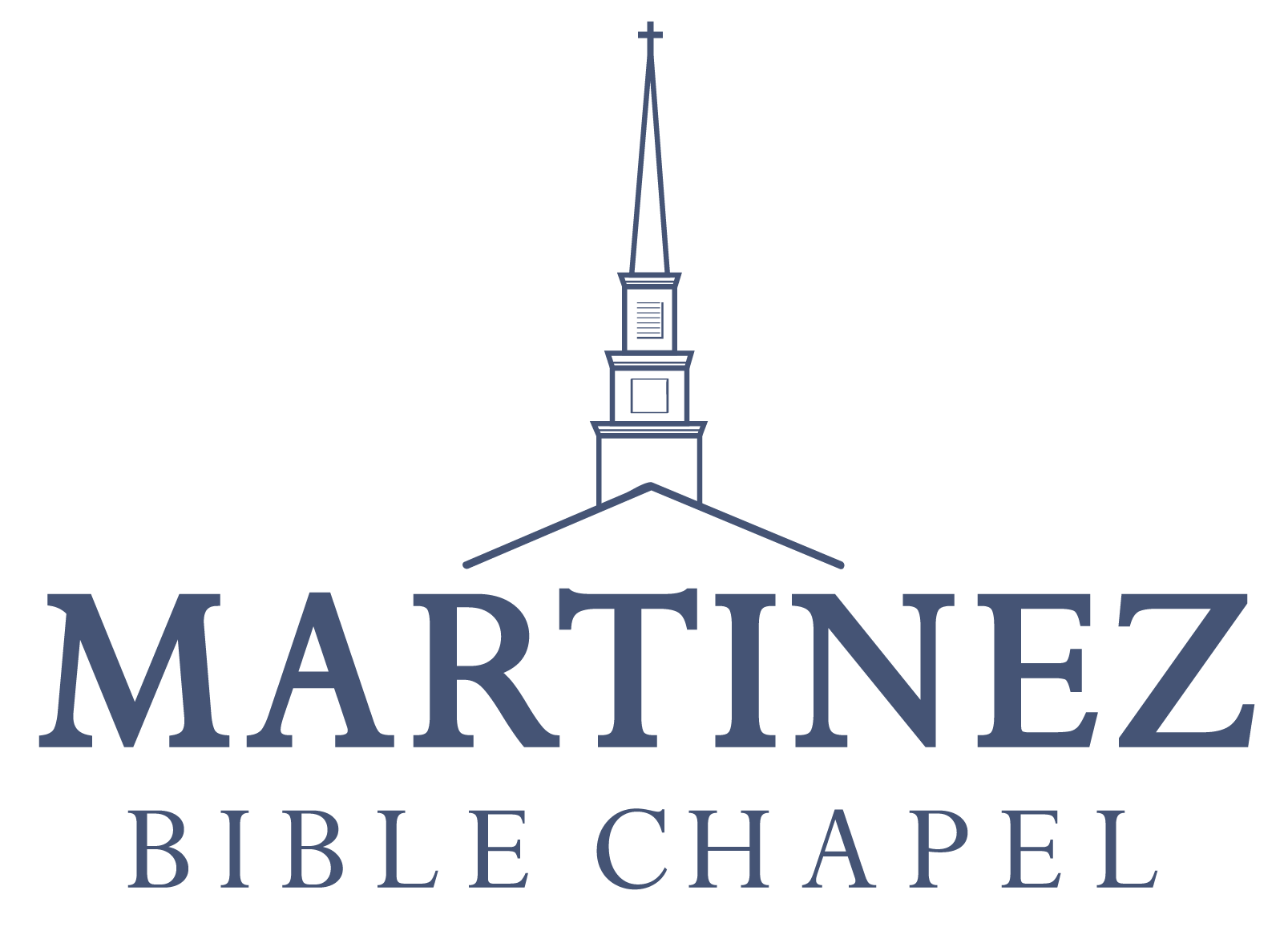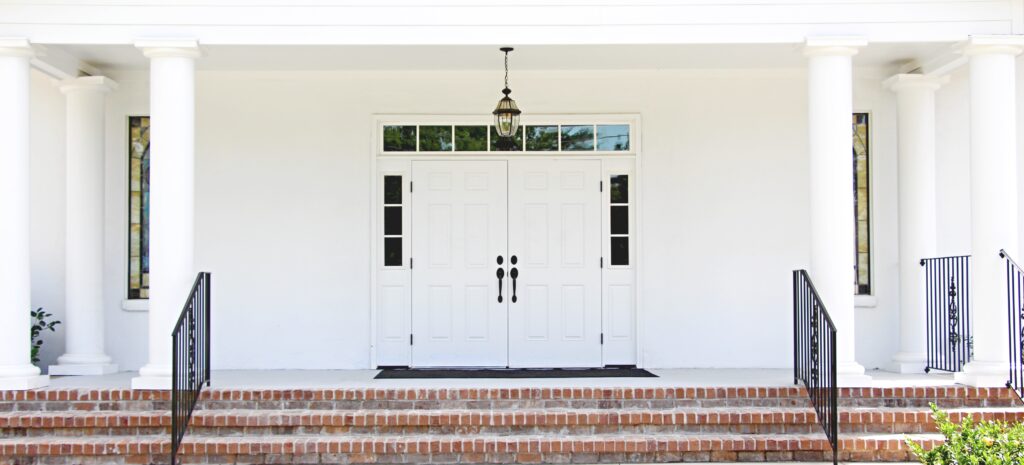- The Bible is inspired of God, inerrant, and the final authority in all matters of faith and practice. (II Timothy 3:16)There is one God, eternally existent in three persons: Father, Son, and Holy Spirit. (Deut. 6:4; John 1:1)
- The Lord Jesus Christ is fully God and fully man, was born of a virgin and is perfectly sinless. He died for our sins, was bodily resurrected from the grave by God the Father, and has ascended into Heaven interceding for us as our eternal High Priest at the Father’s right hand. (Phil. 2:5-8; Matt. 1:18; II Cor. 5:21; Matt. 28:5-7; Acts 1:9; Heb 3:1, 4:14-16, 5:5-9; Mark 16:19)
- Each member of the human race is fallen, sinful, and lost. Redemption is wholly by the blood of Christ, and salvation is by grace, through faith in our Lord Jesus Christ. The Holy Spirit indwells the believer upon conversion and thus empowers a godly life. (Rom. 3:23; Eph. 1:7; Rom 5:9; Eph. 2:8-9; Eph. 1:13-14)
- There are two Christian ordinances, baptism and the Lord’s Supper. Baptism by immersion identifies the Believer with Christ in death, burial, and resurrection. The Lord’s Supper is a memorial feast, instituted by the Lord Himself exclusively for His own. (Acts 8:26-38; Matt. 28:19; I Cor. 11:23-26)
- The Church began with the descent of the Holy Spirit at Pentecost and is composed of all true believers in the Lord Jesus Christ, with each local group led by a plurality of Elders. Our hope is the personal, imminent return of the Lord Jesus Christ. (Acts 2:1- 42; Acts 20:28; I Tim. 3:1-7; Titus 1:5-9; I Peter 5:1-3; I Thess. 4:13-18; Rev. 22:20)
Our goal is to bring glory and honor to the Lord Jesus Christ (Ephesians 3:20–21). This is accomplished by obeying His Word in all issues concerning life, especially those relating to the church. Thus, our vision is based upon the Great Commission of the Lord Jesus Christ in which He gives instructions to make disciples of all nations (Matthew 28:19–20). Paul re-emphasizes this concept in his letter to the Ephesians where he states that his goal is to preach the “unsearchable riches of Christ” and teach the “fellowship of the things…hidden in God” (Ephesians 3:8–10). Consequently, we desire to see souls saved as ones trust the Lord Jesus as the Savior for their sins, and believe that He died for their sins and rose again. We desire to see believers grow to understand the Word of God, appreciate the love of God, and practice in their lives all that God teaches. Eventually, believers should grow to see other souls saved and follow the teachings of God’s Word. This becomes a repeating cycle.
As one comes into a meeting of the church, he will observe three “personages” that come into view; the Lord Jesus Christ, the Holy Spirit, and believers or saints (those who have trusted the Lord Jesus Christ as their Savior).
• The Lord Jesus is God and our head or pastor of the church. (Ephesians 1:22–23). He is to have the foremost and pre-eminent place in our affections, plans, and priorities (Colossians 1:17–18). The Bible does not designate anyone else to hold this position. Therefore, we do not establish the office of pastor as is traditionally done by many churches. There is still leadership in the local church, but it is not a singular individual presiding over a church gathering.
•The Holy Spirit is another person who functions in the local church. He is fully God and serves to direct our attention to the Lord Jesus Christ (John 16:13–14). Additionally, He directs and guides the church in our worship (John 4:23–24) and decisions (Acts 13:2–4). He provides the strength necessary for believers to live the life of a Christian (Galatians 5:16–22).
• The believer is one who has specifically believed in Jesus Christ as the Son of God. He believes that Christ was sent by God His Father to take the form of man in order to die and rise from the dead as a substitute for the penalty of man’s sin which is death (John 1:12, 3:16, 3:36). The believer is subsequently adopted into the family of God and made a member of the church. The Bible uses the analogy of the anatomy of the body of the Lord Jesus to explain this new relationship of believers, one to another.
The Word of God organizes believers in the church into three groups for the sake of organization and order: saints, elders, and deacons (Philippians 1:1). The “saints” comprise all believers in a church meeting. “Elders” are ones who have been put into a position of church leadership by God’s Spirit (Acts 20:28). “Deacons” are likewise identified as ones whom God’s Spirit uses to provide practical assistance in the affairs of the Church so that the “elders” can more fully devote their attention to spiritual matters in the Church (1 Timothy 3:8–13; Acts 6:1–4). The elders and deacons are classified as “saints” but provide a particular service in unique areas for the Lord.
The leadership structure of Martinez Bible Chapel is based on the offices of elders and deacons, as recognized in the New Testament. Also, based on the pattern provided in the New Testament, Martinez Bible Chapel practices a plurality of leadership. As such, no single individual has the responsibility of presiding over Martinez Bible Chapel.
The elders and deacons have specific qualifications (1 Timothy 3:1–13 and Titus 1:5–9). They also demonstrate that the Holy Spirit has chosen them for their roles in the church by their participation in the responsibilities for their respective areas of service (1 Thessalonians 5:12, 1 Timothy 3:10). The Holy Spirit works in the lives of prospective elders and/or deacons as they function within a local church so that the believers in the church are able to recognize whether the Holy Spirit has chosen them to become elders or deacons. The elders are specifically charged with shepherding the saints and protecting the saints from erroneous teaching from God’s Word. In short, they must give an account for the “making of disciples” to the Lord Jesus in a coming day of evaluation (Hebrews 13:17; 1 Corinthians 5:9–11).
Many ask about our membership. The truth is that the Bible already calls you a member of the Body of Christ, if you have trusted the Lord Jesus as your Savior (1 Corinthians 12:12–14). Scripture does not recognize any other membership list. However, Scripture does present the idea of “being in fellowship” (1 John 1:5–7; Acts 2:42). This phrase describes an understanding and agreement between the church-goer and the Lord Jesus Christ, that such a person is placing himself under the authority of the Lord Jesus through the leadership of the local church elders. These elders are charged by God to give an account of such souls, and the believer is charged to make sure that this accounting is honorable (Hebrews 13:17). This relationship implies that there is a “sharing in the common” (definition of “fellowship”) or a common bond in the Lord Jesus Christ. There are many benefits to the believer in this relationship; prayer for one’s spiritual well-being, accountability in maintaining one’s personal and church testimony, identification with one another, love for each other in a family-like atmosphere, and a bearing of each other’s burdens, to just name a few.
We practice the priesthood of all believers. We do not recognize a special class of people who do the Lord’s work. Every believer in Christ is encouraged to use their gift(s) to serve the Lord for the benefit of fellow believers and to reach the unsaved.
On the night on which He was betrayed, the Lord Jesus instituted the Lord’s Supper with His disciples. He did so on the night of the Passover feast, anticipating His coming sacrifice as the true Lamb of God. As He passed the bread and cup to His disciples, He commanded “This do in remembrance of Me.” (Luke 22:19)Early Christians understood this and made it part of their regular church practice (Acts 2:42). It was customarily done on the first day of the week (Acts 20:7), the day Jesus rose from the dead.The object of this memorial feast is the Lord Jesus Christ. We are to remember Him. The loaf of bread represents His body, given on the cross for us. (Luke 22:19) The cup represents His blood shed for our sins. The Lord’s Supper reminds us of the person and work of the Lord Jesus. It is primarily a time of worship, thanksgiving and adoration centered on God Himself, and not a time centered on blessings we have received or petitions (requests) for our own needs.Partaking in the bread and cup is restricted to believers only. Martinez Bible Chapel welcomes anyone who names the Lord Jesus Christ as their personal Savior, and is living in fellowship with Him (1 Cor. 11:27), to participate. If someone has not yet accepted salvation in Christ, or if he is unsure of his relationship with Christ, we would ask that he be an observer only and not partake of the bread or cup.The Lord’s Supper is an open meeting where believers are encouraged to share from the Word of God, offer a hymn, or pray. (1 Cor. 14:26) The Holy Spirit Himself directs the time of worship.Public sharing is restricted to men. (1 Cor. 14:34) Women are encouraged to pray and worship silently, but not publicly, in the Lord’s Supper. (1 Tim 2:11-14) This is a matter of church order, not superiority or inferiority between genders, as God views all as equally one. (Gal 3:28) God also instructs women to have their head covered and men to have their head uncovered as they gather for prayer and worship. (1 Cor. 11:4-5)
Public participation is to be thoughtful and prayerful. Attention should be given to the words of hymns sung or Scriptures shared in order to harmonize with others in the purpose of worship. We want to glorify Christ with hymns, scripture readings and prayers, all focusing on Him. This is not intended as a time to simply give out favorite hymns, tell anecdotes of our daily life, publicly confess failings, or give some doctrinal teaching that may have appealed to us personally. This is a time to exalt and magnify Christ alone.
Remember, if you are a believer in the Lord Jesus Christ, then you are a holy priest (1 Peter 2:5) bringing sacrifices within the “holy of holies” where God is present. At the Lord’s Supper, you are acting in a position of highest privilege to bring honor and glory to His name.
Each Wednesday night at 6:00 pm, a free meal is provided by Martinez Bible Chapel in the fellowship hall. All are invited to join us for dinner and to spend time together.
We believe that gathering together in corporate prayer is of utmost importance for believers in a local church and that an effective precedent was set by the early church as they continually devoted themselves to prayer (Acts 2:42).
At Martinez Bible Chapel, every Wednesday night at 7:00 pm a period of time is devoted to the study of Scripture and then a time is devoted to prayer. Men are provided the opportunity, and have the responsibility, to pray and offer thanksgiving to the Lord audibly on behalf of the saints. It is a valuable opportunity to be together, be of one mind, and be thankful and diligent to pray for others and to be led by the Lord.
Principles of the Church
Speaker: Bill Gustafson

